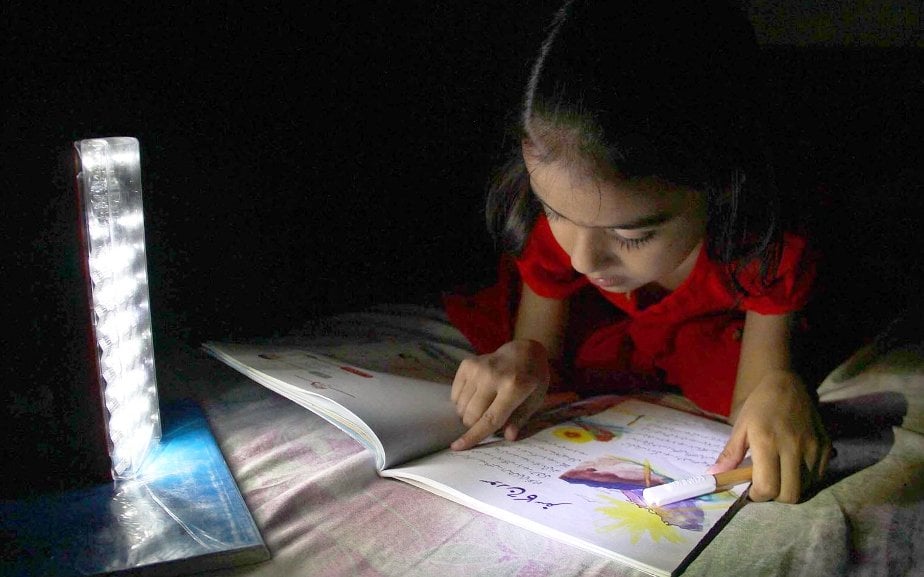
For all the enormous technical complications involved in running a nationwide electricity grid, the problem that ails the country’s power sector today is a remarkably simple one: Pakistan has an energy crisis almost entirely because a large proportion of Pakistanis are thieves who do not want to pay for electricity.
This week, The Express Tribune attempts to take a comprehensive look at the power sector and examine the causes for the massive power shutdowns. Our goal in this report is not to look at what the problem is currently, but how it arose in the first place and what can be done to fix it.
The picture we come up with is grim. At virtually every stage of the energy cycle, there are massive problems with either the government’s planning or execution, and frequently both, a fact that becomes easier to understand when one realises that the government has never had a comprehensive national energy policy.

Our special report is divided up into four segments, each one covering a different segment of the energy chain: sources of primary energy, power generation, transmission, and distribution.
The problem starts at the very beginning, with a fuel mix that is skewed towards the most expensive kinds. There is an absurdly large reliance on oil, for instance, which is virtually unheard of in countries without substantial oil reserves of their own. Not nearly enough investment has gone into increasing hydroelectric power generation, which is the most expensive to set up but the cheapest to run on a per unit basis.
At every subsequent stage, the problem keeps on compounding, the mistakes of the previous stage being magnified by the inefficiencies of every successive segment of the supply chain.
The poor fuel mix translates into electricity generation being more expensive than it needs to be. The expensive electricity, coupled with exceedingly poor rule of law, in turn encourages outright theft of electricity and leaves little for maintenance of the infrastructure, which causes yet more rises in the cost of producing electricity. And finally, an unwillingness of the government to force people to pay their bills results in yet more losses.

The key problem in all of this, however, is the propensity of a large proportion of Pakistanis to steal electricity and the government’s unwillingness to confront them. Our analysis indicates that if transmission losses in Pakistan were kept at a level similar to that of the United States, and if bill collection were close to 100%, tariffs would need to rise by a relatively meagre 7.7% from their current average levels.
The problem, of course, is that theft is not going away in Pakistan any time soon. And so we have, effectively, a nation that steals electricity, pays no taxes, and then complains when the government runs out of money to pay for the electricity that they stole in the first place. In the power sector, the debt is very clearly not the only thing that is circular.
The problem cannot be resolved until the stealing is stopped. Locking up everyone who steals electricity is clearly not possible, but incentivising good behaviour is very much within reach. In this, the government would do well to carefully examine the model of the Karachi Electric Supply Company, which has spent considerable time and resources in figuring out which areas have high theft and which have low theft, and then provided relatively uninterrupted supply to areas where people do not steal electricity.
In the weeks since the election, the country is going through a unique moment: when two of the largest political parties in the country broadly agree on the contours of a solution to the energy crisis. This is a moment that is unlikely to return in the future. If the country’s leaders fail now, it may be lights out on the Pakistani economy for a very long time to come.
Published in The Express Tribune, June 3rd, 2013.
Like Business on Facebook to stay informed and join in the conversation.
COMMENTS (24)
Comments are moderated and generally will be posted if they are on-topic and not abusive.
For more information, please see our Comments FAQ




1719660634-1/BeFunky-collage-nicole-(1)1719660634-1-165x106.webp)





1724249382-0/Untitled-(640-x-480-px)1724249382-0-270x192.webp)






Entice current KESC management to head select urban ESCOs (KESC has some six current or ex-MD/DMDs). (Gestation 3 years before results come in)
Sell LESCO to KESC. Privatise distribution companies methodically (3 years for privatisation; another 3 for results)
Import electricity from India (if possible; indecision and uncertainty on this project will KILL all other projects) (Gestation period 2 years)
Quickly announce private power generation policy that specifically addresses run-of-the-river plants. This needs generous concessions from the GoP and will open the administration to "rental power-like" accusations. (Gestation period 5-8 years)
Set up LNG import and re-gassification plant to import gas. Set up IPPs based on this gas.(Gestation period 4-5 years)
Once financing for the LNG terminal closes, announce to stick with Pakistan-Iran pipeline, though you will not be able to finance IPPs based on this gas, you can convert existing consumption on imported gas, while new generation capacity can be based on Sui, etc. (Gestation period 2 years; yes, there is no typo)
Divide Punjab into 2/3 provinces and, in return, get Sindh to agree on Kalabagh.
The Musharraf energy policy lingered due to indecision. Lets not repeat the mistake.
Thank you for a well-researched and very informative piece. This is what true journalism is all about!! Keep it up!
good governance and "less losses less loadshedding, more recovery less outages" is key formula to keep up the country's economics and reducing power crises
@Jehanzeb
Punjab has lowest bill collection and transmission losses. Given that, the longer load shedding that Punjab is experiencing seems unfair.
@Jehanzeb:
look at the diagram again the most power theft and losses occur in Sindh (combined) and KP, you just decided to stake out Punjab as its the largest province
What about the KESC people who are providing the areas legal kundaas for Rs 2000 a month. Which allows them to use unlimited electricity without any power outages? Can anyone explain this matter?
@Jehanzeb: Please don't make it about Punjab or any other province. Its a national issue. The only certain deduction from the diagrams is that theft is happening all over Pakistan some more than others. Transmission losses will be least in densely populated Punjab so that leads to no conclusion. Lets work as a nation to resolve this issue. Lets not steal, and lets discourage thefts/kundas in our neighborhood. Together we can make it a prosperous Pakistan as Jinnah dreamt.
What about Coal and Solar in terms of going foward ?
@Rizwan: Well said.
The root cause is the insane cost of electricity, not the theft. The high cost is obviously an incentive for a poor awaam that already suffers from a low income per capita. And we can blame the PPP government of the 90s for beginning this shift to oil production and skewing the fuel mix. This is the same PPP government that has been opposed to the Kalabagh dam all along for political reason. Wish these leeches would just die and leave our country alone forever.
Good Research....However, the article finished too quickly...you can add other some other information regarding the options we have and link it to the government finances. For e.g whether Thar coal is really the answer or is it just a buzz word for day-dreamers. Whether big dams like Basha will be better than a number of smaller dams.
@Jehanzeb: How did you come to that conclusion given that the data is completely contradictory To that statement. Is this an example of Colbert's truthliness?
Stealing? Theft? I would have thought in a country as pious as Pakistan such words would not exist- let along the despicable actions associated with these words! Once again words fail when the utter hypocrisy is considered! Where are the Mullahs preaching against such poor public behaviour? Oh yes, I forgot they are too busy worrying about DNA testing for rape victims not being in line with the teaching of the Koran! Whereas, theft is perfectly acceptable since they are probably some of the biggest perpetrators and sweep those verses under the prayer mat..
Very informative article. Bottom line is absolutely correct that theft is the main cause. However in my view some figures presented in the article don't match with the situation on the ground. e.g. theft is far more than shown in article. Its hard to find out which city or area stands number one in power theft. Before it was FATA and Karachi, now disease has spread all over Pakistan. Most of the thieves consider it their birth right. About ten years ago, I visted some places in FATA, which was relatively peaceful area at that time. What I observed was that every big house had a separate transformer. When I asked about the cost and bills, my host just laughed and told me that we don't have "Meters". When I called it a theft, he refused to accept it as a Theft. "Its not a theft, its our right, most of the power generation is done in K.P and distributed to other parts of the country. They are using our Bijli, so why should we pay", was his reply. That mindset was many years ago. Situation on the ground has detriorated more than we could think.
Proof of the pudding is staring in our face. Punjab with the lowest transmission losses and lowest theft in the country has borne the brunt of load shedding that has destroyed its industrial base. In doing so the rest of the country committed theft collectively. I accuse holders of high offices of moral turpitude, especially those that lost their mandate in May elections. Everyone should look at themselves in the mirror and say Pakistan Khappay. What a price we have paid for democracy's revenge.
You are right when retired judges n other bureaucrates getting free electricity where they used 5 to 6 aircondition without they need
So what's new? Wont pay taxes, wont pay electricity bills, wont pay gas bills, wont pay water bills. Will flaunt the fact that due to connections no one will "dare" do anything about it. Wear it as a badge of honour, put then complain to no end, and dream of 100 years of cheap electricity from Thar coal or rumours such as China offered to provide unlimited electricity for Rs. 500 a month. Rather then spending money on UPS's, generators etc, why not just pay the real cost of electricity and change behaviour to reduce waste?
Very informative article, please add to that region-wise demand for electricity.
Punjab is carrying all the parasites. There can't be free lunches. The soup kitchen should be closed for the bludging provinces.